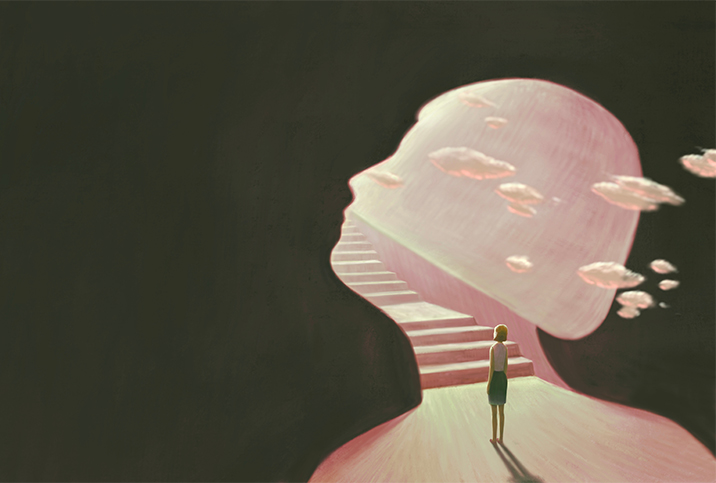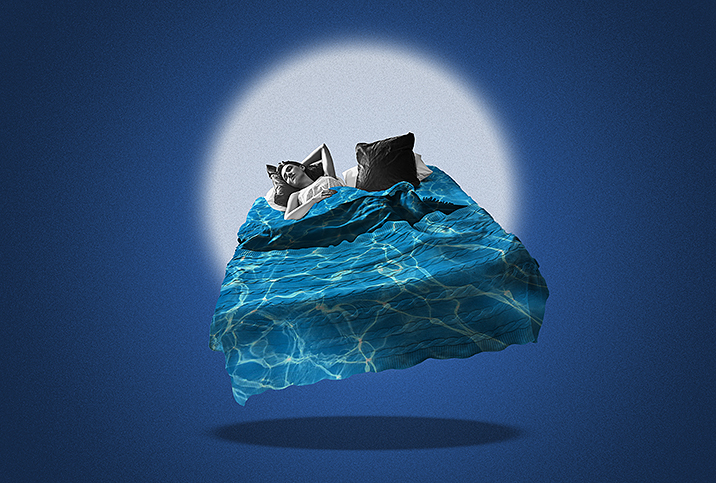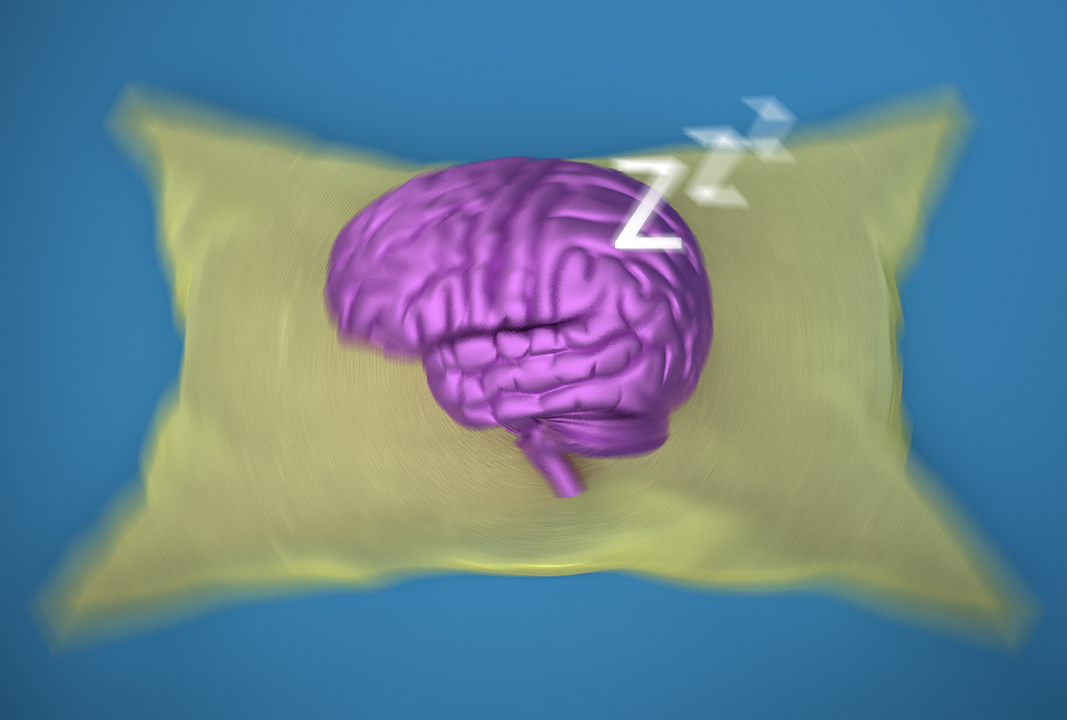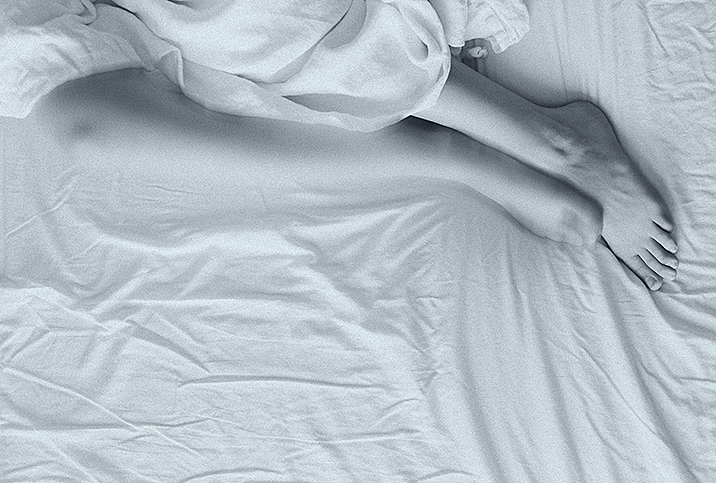When Your Dreams Ruin a Restful Night's Sleep

Walt Disney is often attributed with saying, "If you can dream it, you can do it." Sadly, he wasn't referring to a good night's sleep.
Dreams and nightmares are common for everyone. Some dreams can be recurring, vivid and downright scary, while others might be whimsical, utter nonsense. While dreaming is a natural part of our sleep cycle, frequent nightmares or vivid dreams can alter sleep patterns and impact our health.
"Dreaming is a normal phenomenon in both REM—deep sleep in which you remember your dreams vividly—and non-REM," said Abhinav Singh, M.D., facility director and sleep specialist at the Indiana Sleep Center. "Not dreaming is not good, but remembering too much can also be a concern, because both extremes can disrupt your sleep cycle, leaving you tired and unable to think and function properly."
Why we have dreams
Dream analysis has remained extremely popular throughout history. From Aristotle to Sigmund Freud and Carl Jung, many scholars believed dreams to be a window into the soul, hiding the deepest desires and fears of our subconscious.
Dream analysis remains a popular topic in the area of psychoanalysis and some aspects of cognitive behavioral therapy (CBT). For the majority of the psychological community, however, the primary focus of this analysis has shifted from finding mystical symbolism to instead seeing dreams as a symptom of unresolved emotions from a patient's daily life.
From a mental health perspective, most professionals believe dreams are a collection of events the brain is still attempting to process.
"You have unresolved issues during the day," said Kimberly Pisarcik, a licensed clinical social worker based in Wilkes-Barre, Pennsylvania. "We make hundreds of thousands of decisions in a day, so if you feel those issues do not resolve, anxiety increases, which can prevent you from falling asleep, staying asleep or even reaching the restorative sleep stage."
Sleep specialists agree: Dreams and nightmares impact the restorative sleep cycle, also known as rapid eye movement (REM) sleep. In this state, the brain and body complete important processes which ensure our body functions at its peak abilities, including rest and recovery from our day.
It's also theorized dreams are the byproduct of the brain moving memories from short-term to long-term storage.
What dreams tell us about our sleep
While we don't know exactly what our dreams mean, we do know they can indicate aspects of our sleep quality. For example, having regular, vivid dreams tells us our body and brain are functioning properly in our sleeping hours.
But being unable to remember any of your dreams isn't significant cause for concern. Remembering snippets here or there is absolutely OK.
However, we should be concerned when these dreams wake us up because they are so vivid. Singh explained these disturbances can happen when the brain creates such vivid images that our body actually responds physically to the stimulation.
"The most common concern with this stimulation is that a person might sleepwalk, talk or even perform activities such as driving, eating or even some of their daily tasks," Singh explained. "You can imagine the problems that can occur if someone decides to walk out on their balcony or get behind the wheel of a car when they're asleep."
These are extreme examples, but they can become reality for many people. More often, though, children and adults have such intense nightmares that they experience night terrors, where the dreamer wakes up abruptly from the third stage of non-rapid eye movement (non-REM) sleep—known as deep sleep or slow-wave sleep.
"When kids have terrors and nightmares, we don't worry too much because neurons are connecting, and these occurrences are signs of the growing brain," Singh noted. "Most night terrors disappear around age 12, but when they continue, we need to understand the causes."
Overcoming sleep disturbances
When a child older than 12 or an adult experiences a night disturbance, the first medical response is to perform tests, including a sleep study, to identify the root cause. In addition to a sleep study, Singh often refers patients to a mental health professional.
"In these situations, we look at causes that are often external and manifest in sleep," Singh said.
"Dream content cannot be measured accurately to be able to clearly connect this to sleep disorders," he noted. "Much research is being done in terms of mental health disorders such as anxiety and PTSD."
By evaluating what is causing our sleep disturbances, we can ensure a better night's rest, which improves our waking hours.
"When a patient comes to my office with nightmares or vivid dreams, rather than focusing on the content of the dream, we want to focus on backtracking through the patient's waking hours," Pisarcik explained. "When we work through the events of the day, we can typically pick out the highlights, and within those moments, we can find situations that caused fear, anger, anxiety or frustration. These emotions can stay with us and either keep us awake or disrupt our sleep."
Whether your sleep events are caused by stress in your daily life or a sleep disorder such as sleep apnea, frequent sleep disturbances can have a dramatic effect on your overall health. Making an appointment with a sleep specialist or counselor could give you a lot more than a good night's sleep.




















